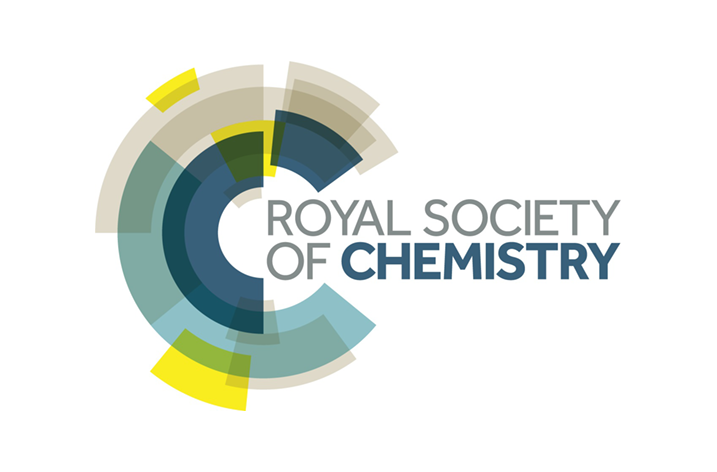
A pair of researchers in India have lost a 2017 paper published by the UK’s Royal Society of Chemistry after an inquiry found that they’d stolen the guts of the work from an unpublished manuscript one of them had reviewed for another journal.
The article in question, “Tri-s-triazine (s-heptazine), a novel electron-deficient core for soft self-assembled supramolecular structures,” appeared in Chemical Communications was submitted on August 4, 2017 and published on September 25, 2017, and was written by Irla Kumar and Sandeep Kumar, of the Raman Research Institute in Bangalore.
Sandeep Kumar, who is now retired, was a leading figure in the field of liquid crystals. The Royal Society of Chemistry feted him as one of the “most cited” researchers in Chemical Communications and another of its journals in 2006 and 2007. He also served on the editorial boards of several journals, including Liquid Crystals — a post that is particularly relevant in light of what follows.
According to the retraction notice:
The Royal Society of Chemistry wholly retracts this Chemical Communications article following a misconduct investigation carried out by the Raman Research Institute.
Content from an unpublished version of a paper published in Liquid Crystals by Sayed et al.1 may have subsequently been published in this Chemical Communications paper. It has been confirmed that one of the authors was a reviewer of the Liquid Crystals paper and after failing to disclose a conflict of interest, may have taken advantage of privileged knowledge of the then unpublished paper of Sayed et al. during the peer review process.
The investigation committee informed us that the Chemical Communications authors could not produce any credible evidence of having performed the synthesis or the physical measurements related to their work before the unpublished paper of Sayed et al. was received for peer review.
As it cannot be ruled out that the content of the paper published in Chemical Communications was not obtained by credible means, this article is being retracted to protect the integrity and accuracy of the scientific record.
Sandeep Kumar does not agree with the outcome of the institutional investigation and opposes this retraction.
The Liquid Crystals paper, “A room-temperature heptazine core discotic liquid crystal,” was submitted on March 7, 2017 and published on August 31, 2017.
The Chemical Communications paper has been cited eight times, according to Clarivate Analytics’ Web of Knowledge, while the Liquid Crystals paper has been cited three times.
Kumar did not respond to a request for comment from Retraction Watch. Hong Yang, the senior author of the Liquid Crystals paper, told us that he did not “want to go through the details of this issue.”
Like Retraction Watch? You can make a tax-deductible contribution to support our work, follow us on Twitter, like us on Facebook, add us to your RSS reader, or subscribe to our daily digest. If you find a retraction that’s not in our database, you can let us know here. For comments or feedback, email us at [email protected].
The most important thing is that new teqniques get published as soon as possible. The problem seems to be the peer review process. So, abandon it!
It’s not very different from the use of doping in competition sports. It is obviously not a good thing, but it comes with the way the field is designed for the community of participants. It is obviously not a good idea to use something that is not meant to be your product, or your own body chemicals. But, it is the abusers of the system, who gets burned, on the end! If you cheat because you are part of the system to prevent publishing of cheating articles, then this system is too corrupt to utilize! It is better to have scientifists that are generally used to be sceptical of any publications, as they should be in the beginning, if they are to make better and more valuable studies at all!
It is very unfortunate authors do such research misconduct bringing bad name to the institutions they work and the country. We are noticing significant increase of research misconduct lately may be due to the availability of internet and cheaters take advantage of it. I think this as an ideal case study for research scholars during publishing ethics course work. Another very important paper retracted due to misconduct has not been noted by many is in “J Biochem Mol Toxicol. 2017;31:e21962. https://doi.org/10.1002/jbt.21962“. Very good retraction to teach research scholars about fabrication, falsification & fraud.
We can only hope research scholars more alert and guide their research ‘guides’…!
Abandoning Peer Review due to a small number of cases of abuse like this seems a little extreme! What we need is to see action taken against the individuals involved in this scam, by either the Journal or their employer or both.
Yes, Abandoning peer review because of few abuses are unwarranted while action taken against individuals involved in scam by either journals, employer or both is essential. However, some organizations require such high performers to boost their research matrices & even known to encourage those behavior. When it is realized beyond doubt those it is too late and they retire as reported in this and similar case! Ultimately, the tag of corrupt and fraudster among colleagues, students and society at large is the most shameful and biggest punishment.